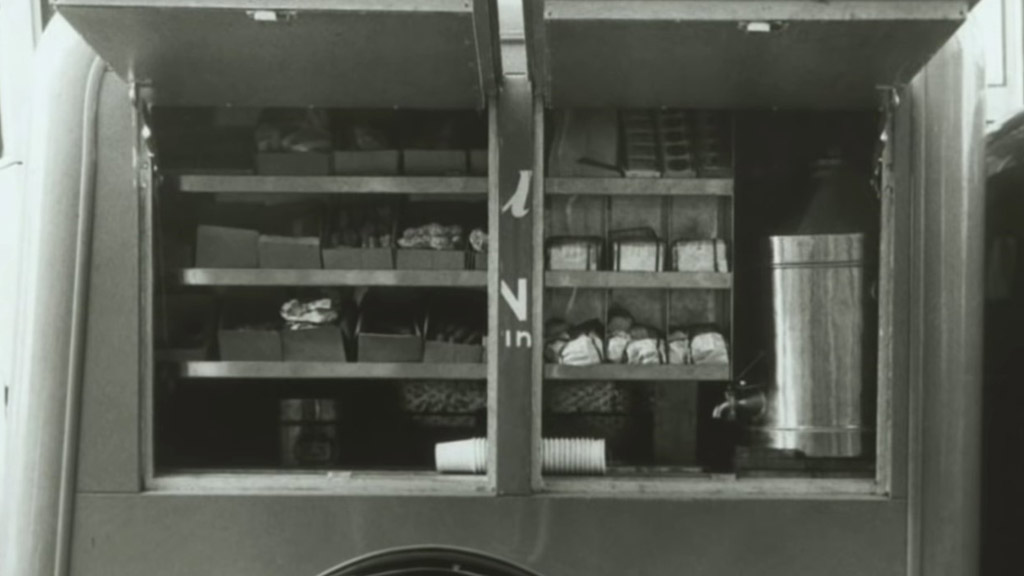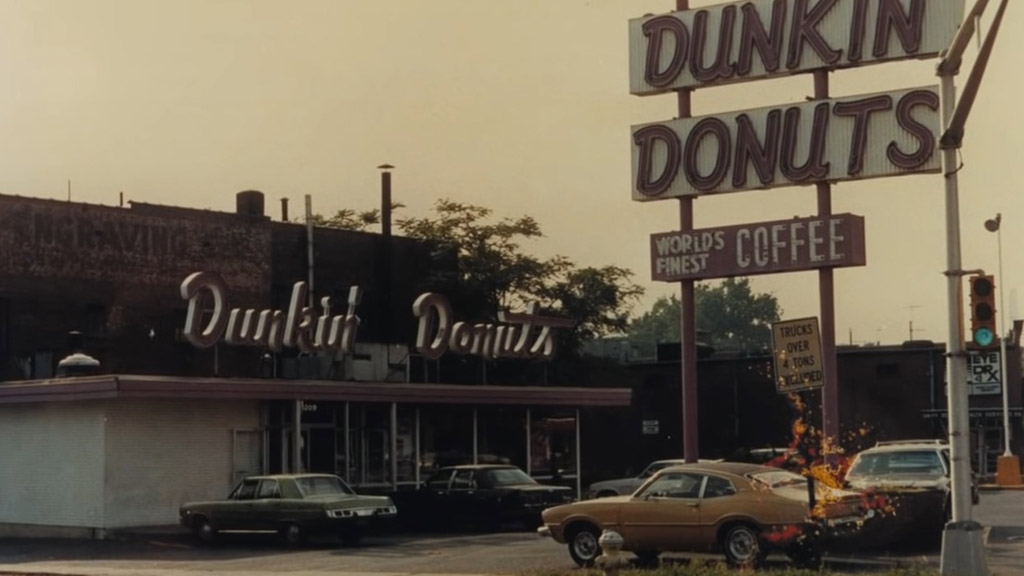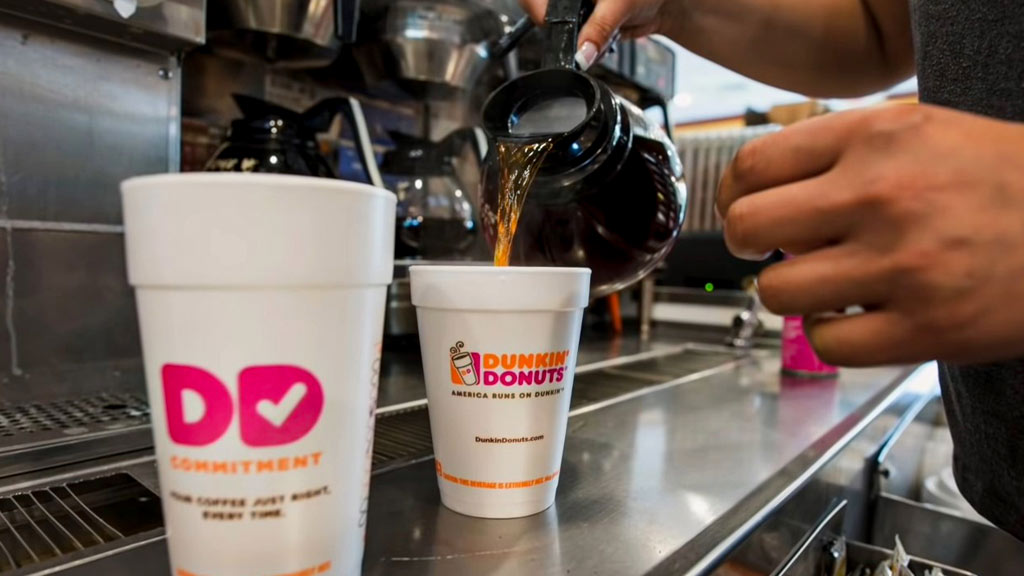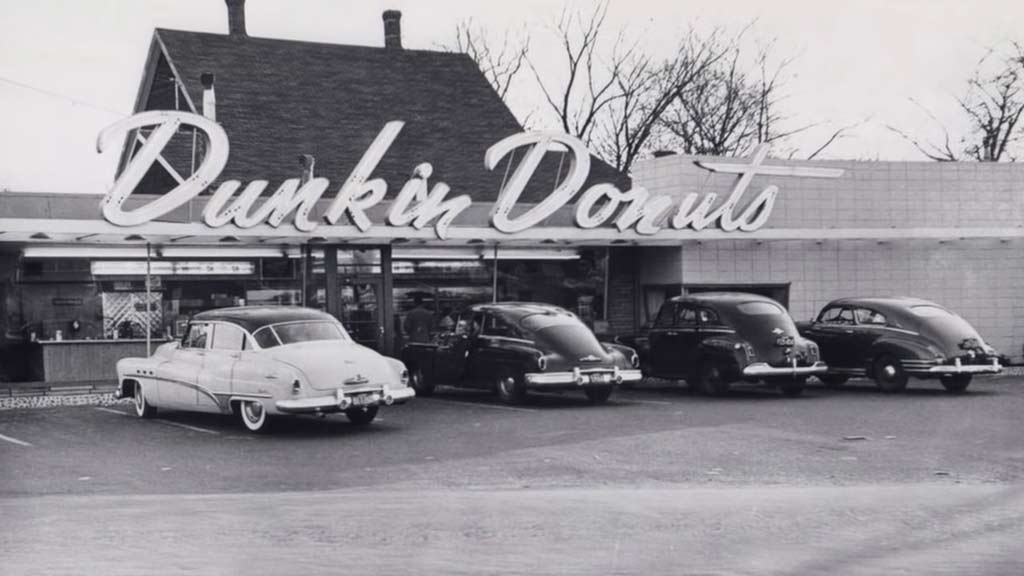Boston, famously known as the birthplace of the American Revolution, holds another title with equal pride: the unofficial capital of Dunkin’ Donuts.
From bustling city streets to quaint suburban corners, the sight of the iconic pink and orange logo is ubiquitous, leaving many outsiders wondering:
Why are there so many Dunkin’ Donuts in Boston? The answer lies in a unique blend of history, culture, and consumer loyalty.
This exploration will explore the fascinating relationship between Bostonians and their beloved Dunkin’. We’ll uncover how the brand’s humble beginnings in Greater Boston sparked a local phenomenon that has endured for decades.
From early morning rituals to post-game celebrations, Dunkin’ Donuts has woven itself into the fabric of Bostonian life, becoming a cultural institution. Join us as we unravel the layers of this enduring love affair and discover why Dunkin’ Donuts and Boston are a match made in caffeinated heaven.
Why Are There So Many Dunkin’ Donuts in Boston?
The proliferation of Dunkin’ Donuts in Boston can be attributed to several factors deeply intertwined with the city’s history, culture, and economic landscape.
Understanding the roots of Dunkin’ Donuts’ presence in Boston requires delving into the company’s origins, its growth strategy, and the city’s unique characteristics.
Historical Context

Dunkin’ Donuts traces its roots back to Quincy, Massachusetts, founded in 1950 by William Rosenberg. The company began as a small coffee and donut shop named “Open Kettle.”
As it expanded, it rebranded to Dunkin’ Donuts in 1950. This historical connection to Massachusetts laid the foundation for its strong presence in the state, particularly in Boston.
Boston’s Coffee Culture

Boston has a rich tradition of coffee consumption, dating back to the colonial era when coffeehouses were hubs for social and intellectual exchange. This culture of coffee appreciation provided a fertile ground for Dunkin’ Donuts to thrive.
The company capitalized on the city’s affinity for coffee by offering residents a convenient and affordable option to satisfy their caffeine cravings.
Working-Class Roots

Boston has a robust working-class heritage, and Dunkin’ Donuts strategically targeted this demographic with its offerings.
The company positioned itself as a quick, affordable breakfast option provider, catering to the needs of blue-collar workers who valued convenience and value for money.
This alignment with the working-class ethos of Bostonians contributed to Dunkin’ Donuts’ popularity in the city.
Franchise Model
Dunkin’ Donuts’ expansion strategy heavily relies on franchising, allowing entrepreneurs to invest in and operate their own Dunkin’ locations.
This model facilitated rapid growth, as franchisees were incentivized to open multiple stores, particularly in densely populated areas like Boston.
The franchise model enabled Dunkin’ Donuts to saturate the Boston market with numerous outlets, ensuring accessibility and convenience for customers.
Loyalty and Brand Recognition

Over the years, Dunkin’ Donuts has cultivated a loyal customer base in Boston through effective marketing campaigns and consistent quality.
The company’s iconic branding, characterized by its pink and orange logo and memorable slogan (“America Runs on Dunkin‘”), has become ingrained in the city’s cultural fabric.
This strong brand recognition engenders trust and familiarity among consumers, further fueling Dunkin’ Donuts’ dominance in the Boston market.
Local Competition
While Dunkin’ Donuts reigns supreme in Boston, it faces competition from local coffee shops and chains. However, the company’s widespread presence and competitive pricing give it a significant advantage over smaller rivals.
Additionally, Dunkin’ Donuts’ diversified menu, which includes not only coffee and donuts but also sandwiches, bagels, and other breakfast items, appeals to a broad customer base, further solidifying its position in the market.
Adaptation to Changing Tastes

In recent years, consumer preferences have shifted towards healthier, more artisanal coffee options, posing a challenge to Dunkin’ Donuts’ traditional offerings.
The company has adapted its menu to include healthier choices, such as oat milk and plant-based alternatives while maintaining its core products. This adaptability has allowed Dunkin’ Donuts to remain relevant in Boston’s evolving coffee landscape.
Community Engagement
Dunkin’ Donuts has deepened its roots in the Boston community through various initiatives, such as sponsoring local sports teams and events.
By aligning itself with Boston’s sports culture, particularly its fervent support for teams like the Red Sox and the Bruins, Dunkin’ Donuts has fostered a sense of camaraderie and loyalty among residents.
This community engagement further strengthens the company’s connection to Boston and enhances its brand image.
What Is the History of Dunkin’ Donuts in Boston?
For many, the aroma of freshly brewed coffee and the sight of a classic glazed donut evoke not just breakfast but a quintessential Boston experience.
With its deep roots in the city, Dunkin’ Donuts is more than just a coffee shop; it’s a cultural icon woven into the fabric of Boston life.
Let’s explore the journey of this beloved brand, from its humble beginnings to its iconic status:
A Seed is Planted in Quincy (1948)

The story starts in 1948, not with donuts, but with coffee. William Rosenberg, a shipyard worker in Quincy, Massachusetts (a suburb of Boston), opened a restaurant named “Open Kettle.”
Recognizing the popularity of coffee and donuts among his clientele, he focused on these items, offering them for just 10 cents and 5 cents, respectively. The concept resonated, and the restaurant was a success.
Birth of a Brand – Dunkin’ Donuts (1950)

Two years later, Rosenberg, inspired by customers dunking their donuts in coffee, renamed his restaurant “Dunkin’ Donuts.” The name stuck, and the iconic orange and pink logo, designed by an executive architect, was born.
Franchising Fuels Growth (1955)
Recognizing the potential of his concept, Rosenberg began franchising in 1955. The first franchise opened in Revere, Massachusetts, just outside Boston, marking the start of Dunkin’ Donuts’ national expansion.
Boston’s Beloved Brand (1960s-70s)
During this period, Dunkin’ Donuts became deeply ingrained in Boston life. Its convenient locations, affordable prices, and consistent quality made it a go-to spot for coffee and breakfast on the go.
The brand’s association with Boston grew even more robust by sponsoring local sports teams and community events.
Expansion and Acquisitions (1980s-90s)

Dunkin’ Donuts continued to expand throughout the United States and internationally. In 1990, it was acquired by Allied Lyons (owner of Baskin-Robbins), which facilitated the acquisition of Mister Donut, further accelerating growth.
Evolution and Innovation (2000s-Present)
The 21st century saw Dunkin’ Donuts adapt to changing consumer preferences. Its diversified menu offers healthier options and catering to different dietary needs. It also embraced technology, introducing mobile ordering and loyalty programs.
In 2018, the brand shortened its name to “Dunkin’,” reflecting its evolving offerings beyond just donuts.
Dunkin’ Donuts Today
Today, with over 9,000 locations worldwide, Dunkin’ remains a Boston icon. It continues to be a popular destination for locals and tourists, offering a taste of tradition alongside modern conveniences.
Beyond Coffee and Donuts
Dunkin’ Donuts’ impact on Boston extends beyond its physical presence. It has created jobs, supported local businesses, and fostered a sense of community.
Many Bostonians have fond memories of enjoying Dunkin’ Donuts with friends, family, or colleagues, making it more than just a coffee shop; it’s a shared experience woven into the city’s social fabric.
As long as Bostonians value convenience, affordability, and a strong cup of coffee, Dunkin’ Donuts will likely maintain its ubiquitous presence in the city for years.
Looking Ahead
Dunkin’ Donuts remains a vital part of the Boston landscape. As it continues to evolve and adapt, its connection to the city and its people will likely endure. In a way, the story of Dunkin’ Donuts is a story of Boston, reflecting the city’s resilience, entrepreneurial spirit, and unique character.
So, the next time you grab a coffee and donut at Dunkin’ Donuts, remember that you’re not just enjoying a snack but participating in a Boston tradition.
FAQs
How many Dunkin’ Donuts are there in Boston?
As of the latest available data, over 250 Dunkin’ Donuts locations are in the Greater Boston area alone. This number may vary slightly due to new openings or closures, but it illustrates the significant presence of Dunkin’ Donuts in the city.
What makes Dunkin’ Donuts so popular in Boston?
Dunkin’ Donuts’ popularity in Boston can be attributed to several factors, including its historical roots in Massachusetts, alignment with the city’s coffee culture, affordability, convenience, and strong brand recognition built over decades of operation in the region.
Are there any locally-owned coffee shops in Boston that compete with Dunkin’ Donuts?
While Dunkin’ Donuts dominates the coffee market in Boston, several locally-owned coffee shops and chains compete with it.
Examples include Pavement Coffeehouse, Thinking Cup, and George Howell Coffee. These establishments often differentiate themselves through artisanal coffee offerings and a focus on quality and sustainability.
Does Dunkin’ Donuts offer any unique menu items specifically for the Boston market?
While Dunkin’ Donuts’ menu is fairly consistent across its locations, it occasionally introduces limited-time offerings or promotions tailored to regional tastes. However, no specific menu items are exclusively available in the Boston market now.
How has Dunkin’ Donuts adapted to changing consumer preferences in Boston, such as the demand for healthier options?
Dunkin’ Donuts has responded to evolving consumer preferences in Boston and beyond by expanding its menu to include healthier options, such as oat milk, almond milk, and plant-based food items.
Conclusion
The prevalence of Dunkin’ Donuts in Boston is not merely a matter of convenience or chance; it’s a testament to the deep-rooted connection between a city and its favorite coffee chain.
From its humble beginnings in Quincy, Massachusetts, Dunkin’ Donuts has become integral to Bostonian identity, reflecting the city’s values of hard work, community, and tradition.
Whether it’s the ceremonial morning coffee run or the post-game victory celebration, Dunkin’ serves as a gathering place where friendships are forged, stories are shared, and memories are made.
Its widespread presence across Boston’s neighborhoods symbolizes more than just a place to grab a cup of joe. It’s a beacon of familiarity, comfort, and hometown pride.
As long as Bostonians crave their daily dose of Dunkin’, the pink and orange logo will continue to adorn the city’s streets, serving as a cherished symbol of unity.
Timothy Russell Dewart